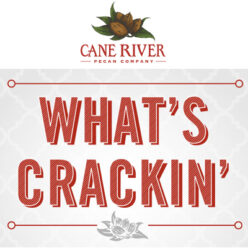 Different Sectors,
Different Sectors,
Different Rules
Showing heartfelt appreciation to people who deserve thanks is vital to a company’s continued success. It can also be a bit like walking on nutshells. You want to build professional bridges with employees, clients and colleagues, especially around holidays or other milestone occasions. Regardless of industry or sector, however, rules and etiquette have become the watchwords of the day, part of a balancing act between ethical behavior and compliance with the law. Legal, ethical corporate gift giving hinges on:
- Federal, state, and local laws.
- Professional industry association guidelines.
- Individual company policies.
Most industries have either laws controlling gifting in the workplace or guidelines and accompanying company policies to ensure gifting remains ethical. In general, a gift must be a gift, and modest is best.
What Is a Gift?
Internal Revenue Service (IRS) guidelines define a gift as “the transfer of property (including money), or the use of or income from property without expecting to receive something of at least equal value in return.” In simpler terms, the giver must truly be giving a gift – sans strings, future influence or control. The higher the value of the gift, the greater the perceived expectation will be of owing something in return.
Gift Taxes and Value
One industry gifting rule that often surprises executives and small business owners alike is that the giver bears the tax burden of the gift, not the recipient. Many rules and guidelines demand that givers and recipients document gifts. In some cases, when values exceed limits, however, not only does it raise difficult questions but also the recipient must repay the excess, making the gift an awkward burden.
Taxes
The magic number in tax law is $25. An organization can deduct any gift up to $25 that it gives to any individual recipient during a tax year. The $25 excludes incidental costs that don’t add value, even if the total of the gift plus shipping, for example, is still below the $25 mark. Incidental costs include expenses like engraving, insurance and shipping charges. Of note are the rules for packaging. In most cases, packaging is considered incidental, a standard part of doing business ineligible to be applied to the $25. However, if the gift is packaged in something that adds value, such as a display basket or ornamental tin essential to the product’s freshness or value, then it’s not considered incidental but eligible to be considered as part of the $25 value.
Value
Gift value can be a slippery slope. Often lines can become blurred over how much a gift is actually worth. Just because something is seemingly free, it may not be. Industry gifting practices vary with etiquette and rules, but a prevalent theme of gift value is key. Regifting items like sports tickets or allowing stays in a luxury vacation property carry underlying monetary value that ethical scrutiny will quickly equate to a pricey dollar amount. The best gifts are those with documented values and costs that are easily validated and don’t exceed ethical thresholds in any way.
Gift Recipients
The $25 rule applies to both direct and indirect giving. Direct giving involves corporate gifts presented to employees, individuals who have a direct, professional relationship with the business. Indirect gifting extends to industry clients and their family members, colleagues and company employee family members.
Industry Sectors Rules
Because corporate gift giving is such a hot-button, sensitive issue, almost every workplace sector has some type of gifting guidelines. Many companies now have detailed, written policies addressing proper etiquette for both gift givers and gift recipients. Google “corporate gifting policy template,” and you’ll even find fill-in-the-blank-type policies to help. While rules vary slightly, most focus on keeping gifts modest and appropriate.
Federal Government
Individual federal government employees cannot accept gifts with a value exceeding $20, and each year holds a $50 threshold. Government employees cannot accept gifts at all if the giver can benefit from decisions or business activities that the employee or the employee’s agency might make. Military service personnel gift guidelines follow the $20 figure, with an annual $50 threshold. However, if gifts are unsolicited, made in bulk and available to all the members of a unit, they can be enjoyed and appreciated. Legislators have similar thresholds, with individual gift value limits at $25.
Financial Broker-Dealers
The Financial Industry Regulatory Authority “prohibits executives at registered broker-dealers from giving gifts to any principal, officer or employee of another member organization, financial institution, news or information media or non-member broker or dealer in securities, commodities or money market instruments over $100 in value.” This is one of the prime industries where the word value can cause problems. Whatever gift is given, the $100 mark is an ethical fault line. Even if you’re giving something that you received for free, consider its fair-market value first.
Medical Field
Corporate gifting in the medical industry must adhere to the Stark Law and the Anti-Kickback Statute; in addition, the Sunshine Act and the PhRMA Code also play a role:
- Basically, the Stark Law says that physicians and their family members cannot maintain financial relations with individuals or companies and also refer patients to those individuals or companies. It seeks to prevent conflicts of professional interest through any form of compensation. It does allow for limited non-monetary compensation up to a certain annual limit, however; for 2015, the figure is $392. The Stark Law also allows for medical staff incidental benefits, which cannot exceed $33 per occurrence.
- The Anti-Kickback Statute “prohibits the exchange (or offer to exchange), of anything of value, in an effort to induce (or reward) the referral of federal health care program business.” This statute has been the cause of many medical fraud legal cases.
- Under the Sunshine Act – a part of the Affordable Care Act – medical professionals are required to report gifts to the Centers for Medicare and Medicaid Services (CMS).
- In addition, the Pharmaceutical Research and Manufacturers of America put forth the PhRMA Code as a voluntary guideline that discourages gifts unless they are educational or otherwise useful to the practice and have no value outside the practice.
Legal Profession
For the legal profession, the American Bar Association’s Rule 1.8 is the oft-cited ethical standard. While lawyers are not permitted to solicit gifts or accept high-end ones, the rule states, “A lawyer may accept a gift from a client, if the transactions meets general standards of fairness.” It goes on to mention that tokens of appreciation or appropriate gifts given at holidays are permitted.
Real Estate
Within the real estate industry, the housing crisis, faulty mortgage loans, unethical house-flipping schemes, overpricing, kickbacks and blatant fraud mean a cloud of suspicion hangs over any gift of significant monetary value. While most of the regulatory focus is on gifts of real estate among family members or business associates, gifts to or from real estate agents or their agencies should follow guidelines similar to those of other industries, and meet “general standards of fairness.”
Telecommunications
In this high-tech age where the electronic device is omnipresent and all-powerful, information and communications technology (ICT) agencies and employees face particular scrutiny. For example, the Federal Communications Commission International Bureau published “Decision-Making Procedures and Ethics Rules: The Practical Enablers of Integrity and Impartiality in Telecommunications Regulation,” which states, “The acceptance of gifts that give rise to impropriety or appearance of impropriety is prohibited in all countries.” However, it also states that “employees can accept gifts in cases where the gift is low in monetary value, where it is the local customary hospitality, or where the employee has obtained express permission of the supervisor.”
Engineering
Individuals in the engineering field are subject to the Board of Ethical Review of the National Society of Professional Engineers (NSPE) Code of Ethics. The ideas behind the guidelines focus on items that carry with them conflicts of interest and undue influence, such as gifts from a corporation that might affect the outcome of a prestigious university-based study.
Assembling the Nutshells
Most industries and employees enjoy giving and receiving tokens of appreciation, especially when they make holidays or company milestones brighter. Giving can be worry-free and truly enjoyed when givers remember to carefully consider:
- Timing – If a contract is under negotiation or a strategic financial decision hangs in the balance, any gift that appears excessive could actually botch the deal.
- Proportionality and Reciprocity – Is the gift appropriate to the professional level of the team or individual who will receive it? Would the recipient be able to respond in kind?
- Industry Rules and Company Policies – Showing you truly value a professional relationship by adhering to the rules helps to build trust rather than stir suspicion or place someone under ethical scrutiny.
Some of the most appreciated items are gifts of food because food can cross gender, professional and even cultural barriers. So many options are available, and values remain within ethical guidelines yet still hold aesthetic, “taste-full” and nutritious value. True giving can be a joyful and heart-warming experience – both for the giver and the receiver. It doesn’t have to be expensive. It just has to be genuine.
Want to learn more about effective corporate gifting? Explore the origins and techniques of this southern practice by downloading our complete guide below!

